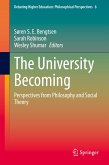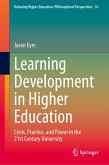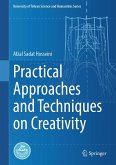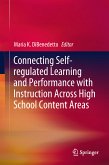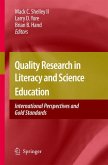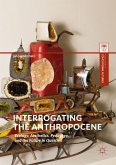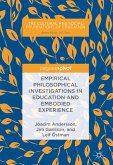Dieser Download kann aus rechtlichen Gründen nur mit Rechnungsadresse in A, B, BG, CY, CZ, D, DK, EW, E, FIN, F, GR, HR, H, IRL, I, LT, L, LR, M, NL, PL, P, R, S, SLO, SK ausgeliefert werden.
Ronald Barnett
Emeritus Professor of Higher Education, UCL Institute of Education, London UK
2
Cranfield does an exemplary service to Leavis in carefully and expertly drawing forth the pedagogic principle of creativity at the heart of his approach to both literature and teaching. Against Leavis's critics, Cranfield defends a Leavisian pedagogy rooted not in an explicit theory but a set of collaborative linguistic practices whose impact and legacy have been most keenly felt beyond the traditional confines of the academy. In insisting on the connections between Leavis's thought and practice with those of more recent approaches to literature and learning, this book points to the continuity of an intellectual tradition opposed to the forces of instrumentalism in education.
Dr Matthew CharlesEnglish Literature, Linguistics and Cultural Studies, University of Westminster
3Steven Cranfield, a former student of Leavis at the University of York, revisits the author in a way that is both accessible and stimulating for an audience whose roots do not necessarily lie in the Great Tradition. His nuanced account both applies and revaluates Leavis's contribution vis-à-vis the role and purpose of the contemporary university. His insights will not only resonate with teachers and students, but also with historians, academic researchers, and those interested in the future direction of policy and practice in higher education.
Dr Celia WhitchurchCentre for Higher Education Studies, UCL Institute of Education, London UK
4In F. R. Leavis: The Creative University, Steven Cranfield attains that rare subtle equilibrium between enthusiasm and objectivity. This admirably condensed portrait illuminates with scrutiny the long, controversial career of the man from the Cambridge 'margins' who provoked a reordering of the literary canon as well as profound alterations to future pedagogy. The balanced and detailed survey of the life of innovations and tempestuous interactions - on critical pedagogy, the function of criticism, the importance of literature, the university as creative centre of civilisation - concludes with a delightful account of what Leavis actually conveyed in his poetry readings in his final years in York. Cranfield's case for Leavis's contemporary relevance will speak with elegant clarity and vividness to those who don't know Leavis as to those who do. It is a compelling yet measured rendering of arguably one of the greatest literary critics and educationalists of all time.
Dr Danièle Moyal-SharrockUniversity of Hertfordshire, President of the British Wittgenstein Society
5.This is the first book on Leavis to make 'pedagogic practice', rather than literary criticism or cultural theory, the main focus of discussion. As such it opens up a refreshing and interesting new perspective on the subject, and is just the kind of book that 'Leavis studies' (as Steven Cranfield formally identifies it) needs if it is show that Leavis still has something to say to the twenty-first century. It is generally well known that Leavis often brought the idea of the university into debate, even when it seemed tangential. The brilliance of this book is to argue that Leavis's idea of critical exchange between teacher and student was foundational for all his thinking. It manages to combine a useful introductory overview with analysis and discussion that even those who know Leavis's works very well will find stimulating and challenging. The book is short and readable, but every chapter is densely packed with ideas for further investigation, and with suggestions for new contexts, particularly theories of higher education, for evaluation of Leavis's thought.
Dr Richard StorerDepartment of Humanities and Leeds Centre for Victorian Studies, Leeds Trinity University



